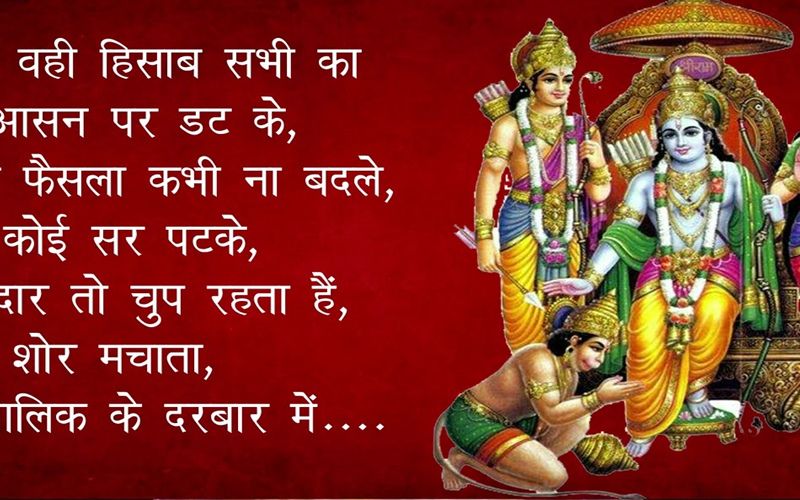“Mere Malik Ke Darbar Mein Sab Logon Ka Khata” is a beloved and deeply meaningful song that has captivated audiences for generations. This poetic masterpiece delves into the profound relationship between the divine and humanity, exploring themes of humility, forgiveness, and the universal nature of God’s love. As you delve into the rich tapestry of this song’s lyrics, you’ll uncover a timeless message that speaks to the very core of the human experience.
The title of the song, when translated from the original Urdu, reads “In the Court of My Master, the Accounts of All People.” This evocative phrase sets the stage for a lyrical journey that transcends the boundaries of religion and culture, inviting you to ponder the nature of the divine and your own place within the grand scheme of existence.
Meaning and significance of the lyrics
The lyrics of “Mere Malik Ke Darbar Mein Sab Logon Ka Khata” are a tapestry of profound spiritual insights, woven together with the artistry of a master poet. Each line is imbued with layers of meaning, inviting you to delve deeper into the universal truths that lie at the heart of this timeless composition.
At the core of the lyrics is the acknowledgment of the divine as the ultimate authority, the “Malik” or Master, who holds the accounts of all people. This recognition of a higher power serves as the foundation for the song’s message of humility, compassion, and the inherent equality of all human beings in the eyes of the divine.
The lyrics also touch upon the concept of forgiveness, imploring the listener to seek forgiveness and redemption, for “in the court of the Master, the accounts of all people” are known. This theme resonates with the fundamental human need for grace and the understanding that we are all flawed, yet worthy of divine mercy.
The artist and composer behind the song
“Mere Malik Ke Darbar Mein Sab Logon Ka Khata” is a true masterpiece of Urdu poetry and music, crafted by the renowned artist and composer, Nusrat Fateh Ali Khan. Hailed as one of the greatest Qawwali singers of all time, Nusrat Fateh Ali Khan’s legacy is inextricably woven into the rich tapestry of South Asian spiritual and cultural heritage.
Born in 1948 in Faisalabad, Pakistan, Nusrat Fateh Ali Khan was a virtuoso of the Qawwali tradition, a genre of Sufi devotional music that has captivated audiences for centuries. His powerful vocals, coupled with his deep understanding of Islamic spirituality and Sufi mysticism, allowed him to breathe life into the lyrics of “Mere Malik Ke Darbar Mein Sab Logon Ka Khata,” transforming it into a transcendent musical experience.
Nusrat Fateh Ali Khan’s contribution to the world of music and spirituality is truly immeasurable. His ability to weave together the sacred and the profane, the divine and the human, has left an indelible mark on the hearts and minds of countless listeners around the globe.
Cultural and religious context of the song
“Mere Malik Ke Darbar Mein Sab Logon Ka Khata” is deeply rooted in the rich cultural and religious traditions of the Indian subcontinent, particularly the Sufi branch of Islam. Sufism, a mystical and esoteric form of Islam, has long been celebrated for its emphasis on the personal and intimate relationship between the divine and the individual.
The lyrics of the song draw heavily from the Sufi concept of the “darbar,” or the court of the divine. In Sufi thought, the “darbar” is not merely a physical space, but a metaphysical realm where the seeker of the divine can commune with the ultimate reality. The idea of the “accounts of all people” being held in the court of the “Malik,” or the Master, is a profound reflection of the Sufi belief in the omniscience and absolute sovereignty of God.
Furthermore, the song’s themes of humility, forgiveness, and the inherent equality of all people before the divine resonate with the core tenets of Sufism, which emphasize the importance of spiritual purification, devotion, and the transcendence of earthly attachments.
The popularity and impact of “Mere Malik Ke Darbar Mein Sab Logon Ka Khata”
“Mere Malik Ke Darbar Mein Sab Logon Ka Khata” has become a beloved and enduring classic, transcending the boundaries of its cultural and religious origins to touch the hearts of people around the world. The song’s timeless message of spiritual unity and the universal nature of the divine has resonated with listeners from diverse backgrounds, making it a true testament to the power of art to bridge divides and bring people together.
The popularity of the song can be seen in its widespread recognition and the numerous covers and renditions that have been produced over the years. From traditional Qawwali performances to contemporary interpretations, “Mere Malik Ke Darbar Mein Sab Logon Ka Khata” continues to captivate audiences, inspiring them to reflect on the deeper questions of life, the nature of the divine, and the inherent worth of every human being.
The impact of this song extends beyond the realm of music, as it has become a source of inspiration and solace for those seeking spiritual guidance and a deeper connection with the divine. The lyrics have been studied, analyzed, and cherished by scholars, spiritual leaders, and everyday listeners alike, underscoring the timeless relevance and universal appeal of this poetic masterpiece.
Translating the lyrics into English
To fully appreciate the depth and beauty of “Mere Malik Ke Darbar Mein Sab Logon Ka Khata,” it is essential to explore the meaning of the lyrics in English. While the original Urdu text is a work of poetic genius, the translation can provide a gateway for non-Urdu speakers to access the profound spiritual insights that lie at the heart of the song.
Here is a translation of the lyrics:
In the court of my Master, the accounts of all people are kept. Whether they are rich or poor, all are equal in His sight. He is the Sovereign, the Ruler of all, and His judgment is just. Forgive us, O Lord, for we have all sinned and fallen short. In Your court, the slate is wiped clean, and we are granted a new start. All our deeds, both good and bad, are known to You, O Master. Yet, Your mercy and compassion know no bounds, for You are the Sustainer of all. We humbly seek Your forgiveness, for we are but Your humble servants. In the end, it is Your will that prevails, and we submit to Your divine plan. Let us walk the path of righteousness, guided by Your light, O Malik.
This translation captures the essence of the lyrics, highlighting the central themes of humility, forgiveness, and the universal nature of the divine. By understanding the English meaning of the words, you can more fully immerse yourself in the spiritual journey that “Mere Malik Ke Darbar Mein Sab Logon Ka Khata” invites you to undertake.
Analysis of the poetic and musical elements of the song
The brilliance of “Mere Malik Ke Darbar Mein Sab Logon Ka Khata” lies not only in its profound spiritual message but also in the masterful craftsmanship of its poetic and musical elements. Nusrat Fateh Ali Khan, the renowned Qawwali artist, wove together a tapestry of lyrical and melodic elements that have captivated audiences for generations.
The Urdu poetry that forms the foundation of the song is a testament to the power of language to convey deep emotional and spiritual truths. The use of metaphors, such as the “court of the Master” and the “accounts of all people,” creates vivid imagery that helps the listener to visualize the divine realm and their own place within it. The rhythmic and rhyming patterns of the lyrics also contribute to the song’s mesmerizing quality, inviting the listener to engage with the words on a deeper level.
Musically, “Mere Malik Ke Darbar Mein Sab Logon Ka Khata” is a masterpiece of the Qawwali tradition. Nusrat Fateh Ali Khan’s powerful vocals, coupled with the accompaniment of traditional Qawwali instruments like the harmonium and tabla, create a sonic tapestry that is both uplifting and deeply moving. The intricate interplay of melody, rhythm, and improvisation allows the song to unfold like a spiritual journey, drawing the listener ever deeper into the realm of the divine.
The seamless integration of the poetic and musical elements in “Mere Malik Ke Darbar Mein Sab Logon Ka Khata” is a testament to the artistic genius of Nusrat Fateh Ali Khan, who was able to elevate the song to the level of a true masterpiece, transcending the boundaries of genre and culture.
Exploring the emotions and themes portrayed in the lyrics
At the heart of “Mere Malik Ke Darbar Mein Sab Logon Ka Khata” lies a profound exploration of the human experience in the face of the divine. The lyrics of the song delve into a range of emotions and themes that resonate with the universal human condition, inviting the listener to reflect on their spiritual journey and relationship with the divine.
One of the central themes of the song is the recognition of the inherent equality of all people before the divine. The lyrics emphasize that “whether they are rich or poor, all are equal in His sight,” a message that challenges the societal hierarchies and divisions that often plague the human experience. This theme of universal equality speaks to the core Sufi belief in the oneness of humanity and the divine.
Another powerful theme explored in the lyrics is that of forgiveness and redemption. The song’s plea for forgiveness, acknowledging that “we have all sinned and fallen short,” resonates with the universal human need for grace and the opportunity for renewal. This theme of forgiveness and the promise of a “new start” in the “court of the Master” offers a message of hope and the possibility of spiritual transformation.
The lyrics also touch upon the themes of humility and submission before the divine. The repeated references to the “Master” and the acknowledgment of being “but Your humble servants” convey a sense of awe and reverence for the ultimate authority of the divine. This theme of humility serves as a counterpoint to the human tendency towards ego and self-aggrandizement, inviting the listener to cultivate a posture of surrender and trust in the divine plan.
By exploring these profound themes, “Mere Malik Ke Darbar Mein Sab Logon Ka Khata” invites the listener to engage with the deep questions of the human experience, such as the nature of the divine, the purpose of existence, and the path to spiritual fulfillment. The song’s ability to resonate with audiences across cultures and faiths is a testament to its universal appeal and the timeless wisdom it imparts.
Covers and renditions of “Mere Malik Ke Darbar Mein Sab Logon Ka Khata”
The enduring popularity and cultural significance of “Mere Malik Ke Darbar Mein Sab Logon Ka Khata” have inspired numerous artists to create their own interpretations and renditions of this beloved song. From traditional Qawwali performances to contemporary adaptations, the song has been reimagined and reinterpreted in a variety of styles, each offering a unique perspective on the timeless spiritual message it conveys.
One of the most notable covers of the song is by the renowned Pakistani singer, Abida Parveen. Parveen, known for her powerful and emotive vocals, brings a fresh and soulful interpretation to the classic Qawwali piece, infusing it with her own unique style and spiritual depth. Her rendition has been widely acclaimed for its ability to capture the essence of the song’s message while also showcasing her virtuosic vocal abilities.
Another memorable cover of “Mere Malik Ke Darbar Mein Sab Logon Ka Khata” is by the Indian fusion band, Advaita. By blending traditional Qawwali elements with contemporary musical influences, Advaita has created a version that resonates with a younger, more diverse audience. Their interpretation, with its driving rhythms and innovative instrumentation, serves as a testament to the song’s ability to transcend cultural and generational boundaries.
In addition to these high-profile covers, “Mere Malik Ke Darbar Mein Sab Logon Ka Khata” has also been reinterpreted by a wide range of artists, from classical musicians to devotional singers. Each rendition offers a unique perspective on the song’s spiritual themes, showcasing the enduring appeal and versatility of this timeless masterpiece.
Immerse yourself in the timeless spiritual wisdom of “Mere Malik Ke Darbar Mein Sab Logon Ka Khata” by exploring the diverse range of covers and interpretations available. Whether you prefer the traditional Qawwali sound or a contemporary fusion twist, there is a rendition that will resonate with your soul. Dive into the rich tapestry of this beloved song and let its message of humility, forgiveness, and the universal nature of the divine inspire your own spiritual journey.
Conclusion
“Mere Malik Ke Darbar Mein Sab Logon Ka Khata” is a true masterpiece of Urdu poetry and Qawwali music, a timeless creation that has captivated audiences for generations. Through its profound exploration of the divine-human relationship, the song’s lyrics and message have transcended the boundaries of culture and religion, resonating with people from all walks of life.
The enduring appeal of this song lies in its ability to speak to the universal human experience, addressing the deep questions and yearnings that we all share. Whether it is the theme of humility before the divine, the promise of forgiveness and redemption, or the recognition of the inherent equality of all people, “Mere Malik Ke Darbar Mein Sab Logon Ka Khata” offers a timeless wisdom that continues to inspire and uplift those who engage with its message.
As you immerse yourself in the rich tapestry of this song’s lyrics and the artistry of its performance, you’ll find yourself drawn into a spiritual journey that invites you to reflect on your own relationship with the divine, the nature of your existence, and the path to true fulfillment. Through the power of this masterpiece, you’ll discover a renewed sense of wonder, humility, and the profound realization that we are all connected in the grand tapestry of the divine’s creation.
“Mere Malik Ke Darbar Mein Sab Logon Ka Khata” stands as a testament to the transformative power of art and the enduring relevance of spiritual wisdom. As you continue to explore and engage with this timeless classic, may it inspire you to deepen your own spiritual understanding and cultivate a greater sense of compassion, forgiveness, and reverence for the divine.





